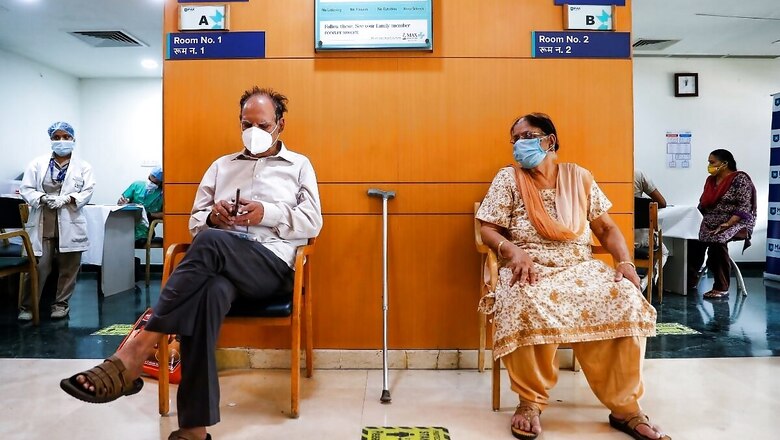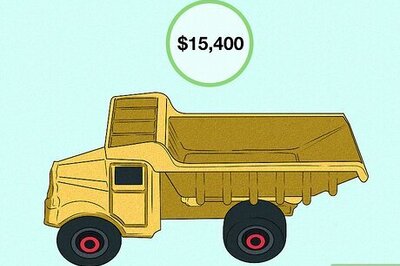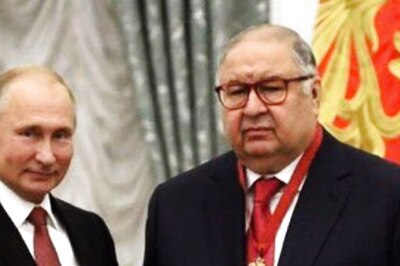
views
In the thick of a fresh Covid-19 blowout in the country, Maharashtra, Chhattisgarh, Telangana, Rajasthan, Odisha, Andhra Pradesh, etc, have been complaining about a shortage of Covid-19 vaccines. The statistics released by union health minister Harsh Vardhan on Thursday— and vaccine availability and consumption data in many states that is not yet in the public domain— however, shows the problem may lie in the management of the inoculation process rather than the availability of doses, as he has pointed out.
Interestingly, all the complaining states have non-BJP, non-NDA governments.
This was even mentioned by the health minister when he tweeted on the matter: “Hue and cry by certain states about partisanship by the Union Government is just a farce, an attempt to hide their own incompetence. Maharashtra and Rajasthan are two of the top three states based on allocation of COVID-19 vaccine doses and both are non-BJP governed states.”
According to Dr Harsh Vardhan, the country’s average vaccine distribution is 37,11,856 doses. Among the top three states receiving vaccine doses, Maharashtra has received 1,06,19,190, Gujarat 1,05,19,330 and Rajasthan 1,04,95,860.
In another tweet, he tried to bring more clarity to the issue. As of Thursday, India had distributed 13.5 crore vaccine doses out of which 9.1 crore had been administered while 2.4 crore doses were in stock. Also, as India is conducting the world’s largest inoculation drive, vaccine logistics and supply has to be a consistent process and 1.9 crore vaccine doses are in the pipeline or to be delivered soon.
“4.3 crore vaccine doses in stock/nearing delivery to the states,” the minister said in the tweet.
Dr Harsh Vardhan added that there is no question of shortage and the central government is continuously monitoring and enhancing supply.
The data that CNN-News18 tried to collect from different states on vaccine supply and consumption only confirms this.
Latest data of vaccine supply and consumption in different states (as of April 8):
Maharashtra
- Doses issued – 1.06 crore
- Doses consumed – 90.53 lakh
Punjab
- Doses issued – 22.37 lakh
- Doses consumed – 14.95 lakh
Telangana
- Doses issued – 25 lakh
- Doses consumed – 17.5 lakh
Andhra Pradesh
- Doses issued – 38.4 lakh
- Doses consumed -35.4 lakh
Tamil Nadu
- Doses issued – 54.86 lakh
- Doses consumed – 33.35 lakh
Karnataka
- Doses issued – 71.61 lakh
- Doses consumed – 50.17 lakh
Bihar
- Doses issued – 46.56 lakh
- Doses consumed – 42.38 lakh
Low vaccination levels of healthcare and frontline workers in the states only support Dr Harsh Vardhan’s statement. Though the minister’s statement was in response to many states demanding the opening up of the vaccination exercise for all age groups, the low level of inoculation suggests that the drive is not being properly managed.

After Dr Harsh Vardhan’s statement, Delhi responded, saying its hospitals vaccinated more among the vaccine-priority groups, at 75%, shifting the blame to the Centre as central hospitals could vaccinate just 30%. It added that there is no vaccine shortage here: “The vaccination drive is going well in Delhi. We have received some vials yesterday. The vaccination stock is available for 4-5 days with us. We will be receiving it continuously as per our demand.”
The statement by the Delhi government reflects the strategy put in place by the Centre on vaccine production, logistics and the supply process. Dr Harsh Vardhan said on Wednesday that “the Government of India has been frequently and transparently updating all the State governments about the demand-supply dynamics and the resultant vaccination strategy that has been adopted”, adding that the practice was taken up after due consultation with all the state governments.
This is something that reflects in the response of the Delhi government, that “we will be receiving the vaccine stock continuously as per our demand”.
Read all the Latest News, Breaking News and Coronavirus News here. Follow us on Facebook, Twitter and Telegram.
















Comments
0 comment